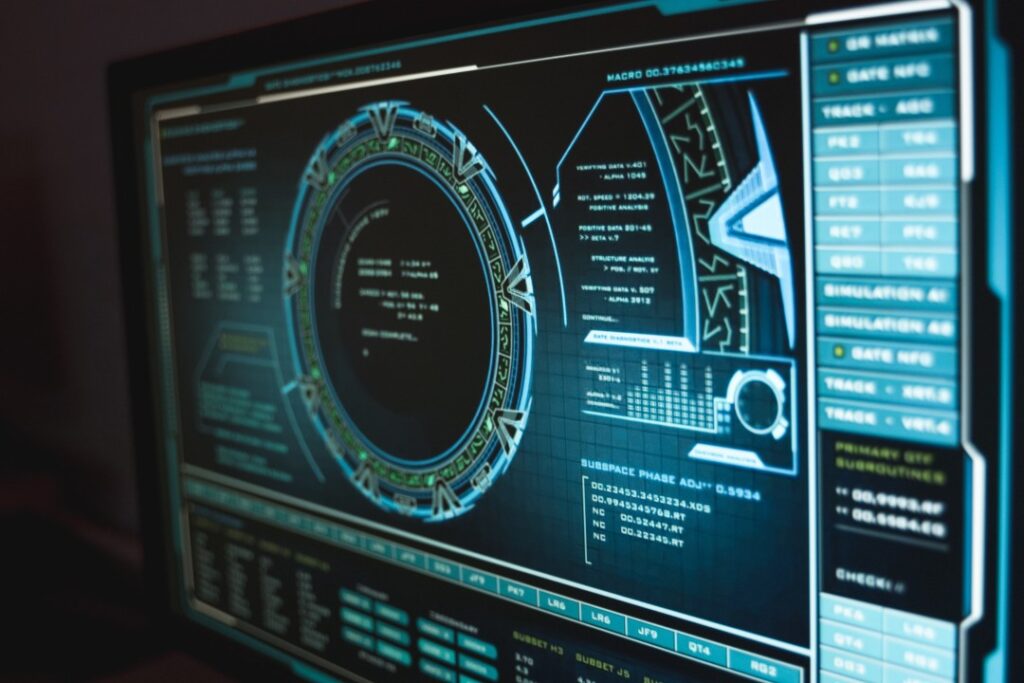Table of Contents
- Introduction
- What is the Importance of Computer Anti Virus?
- Types of Computer Anti Virus Software
- Why Should You Install Computer Anti Virus Software?
- The Consequences of Not Using Computer Anti Virus Software
- How to Choose the Best Computer Anti Virus Software
- Tips for Effective Computer Anti Virus Protection
- Common Myths About Computer Anti Virus Software
- FAQs About Computer Anti Virus
- Conclusion
Introduction
In today’s digital age, where technology plays an integral role in our daily lives, ensuring the security and protection of our devices is paramount. One of the most essential tools for safeguarding your computer from malicious threats is anti-virus software. In this comprehensive guide, we will delve deep into the world of computer anti-virus, exploring its importance, types, benefits, consequences of not using it, tips for selecting the best software, myths surrounding it, and much more.
What is the Importance of Computer Anti Virus?
Computer anti-virus software is a vital defense mechanism against a wide array of cyber threats such as viruses, malware, ransomware, spyware, and phishing attacks. These malicious entities can infiltrate your system, steal sensitive information, corrupt files, and disrupt your computer’s functionality. By installing robust anti-virus software, you create a protective shield that continuously scans, detects, and eliminates these threats, ensuring the smooth operation of your device and safeguarding your data. In today’s interconnected digital landscape, where cyber threats are increasingly sophisticated and prevalent, the importance of computer anti-virus cannot be overstated. It acts as a first line of defense against cybercriminals who are constantly developing new tactics to infiltrate systems and compromise data. Without adequate anti-virus protection, your computer is vulnerable to attacks that can have far-reaching consequences, from financial loss to identity theft.
Types of Computer Anti Virus Software
When it comes to computer anti-virus software, there are several types available in the market, each offering distinct features and capabilities to suit varying needs. Some of the common types include:
1. Free Anti Virus Software
Free anti-virus software provides basic protection against known threats and is suitable for users with limited security requirements. While it may lack advanced features, free anti-virus programs can still offer essential malware detection and removal capabilities.
2. Paid Anti Virus Software
Paid anti-virus software typically offers more comprehensive protection than their free counterparts. They often include advanced features such as real-time scanning, firewall protection, automatic updates, and secure browsing tools. Paid anti-virus programs are ideal for users who require enhanced security measures and additional layers of defense.
3. Internet Security Suites
Internet security suites encompass a broader range of security tools beyond anti-virus protection. These comprehensive packages often include features such as anti-malware, firewall, parental controls, secure VPN, and identity theft protection. Internet security suites are designed to provide all-encompassing security solutions for users looking to safeguard their digital presence effectively.
Why Should You Install Computer Anti Virus Software?
The installation of computer anti-virus software is crucial for several reasons, including:
1. Protection Against Malware
Computer anti-virus software serves as a primary defense mechanism against malware, including viruses, worms, trojans, and ransomware. These malicious entities can infect your system, corrupt files, exploit vulnerabilities, and disrupt your computer’s operation. Anti-virus software helps prevent malware infections and swiftly eliminates any threats that are detected.
2. Data Security
In today’s digitized world, data security is of utmost importance. Personal and sensitive information stored on your computer, such as financial details, passwords, and documents, are prime targets for cybercriminals. Anti-virus software helps secure your data by preventing unauthorized access, data breaches, and identity theft.
3. System Performance
Malware infections can significantly impact your computer’s performance, causing slow startup times, frequent crashes, and unresponsive applications. By installing anti-virus software, you can proactively identify and remove malware, ensuring optimal system performance and stability.
4. Safe Browsing
Computer anti-virus software often includes features that enhance your online security, such as safe browsing tools, phishing protection, and malicious website blockers. These functionalities help protect you from internet threats and ensure a secure browsing experience free from potential cyber risks.
5. Regular Updates
Anti-virus software requires regular updates to stay effective against evolving threats. By installing and updating your anti-virus program regularly, you ensure that your computer is equipped with the latest security patches and definitions to combat new forms of malware effectively.
The Consequences of Not Using Computer Anti Virus Software
Failing to install computer anti-virus software can have severe repercussions, leaving your system and data vulnerable to a myriad of cyber threats. Some of the consequences of not using anti-virus protection include:
1. Malware Infections
Without anti-virus software, your computer is susceptible to malware infections that can result in data loss, system corruption, and privacy breaches. Viruses, worms, trojans, and ransomware can infiltrate your system undetected, causing irreversible damage to your files and compromising your personal information.
2. Identity Theft
Cybercriminals often leverage malware to steal sensitive data such as passwords, credit card details, and social security numbers. Without anti-virus protection, your personal information is at risk of being intercepted, leading to identity theft, financial fraud, and other forms of cybercrime.
3. System Slowdowns
Malware infections can significantly impact your computer’s performance, causing it to slow down, freeze, or crash frequently. Without anti-virus software to detect and remove these threats, your system may become increasingly unstable, hindering your productivity and user experience.
4. Data Breaches
In the absence of anti-virus protection, your system is vulnerable to data breaches where cybercriminals gain unauthorized access to your files and sensitive information. Data breaches can have far-reaching consequences, including financial loss, reputation damage, and legal repercussions.
5. Spam and Phishing Attacks
Cybercriminals often use spam emails and phishing attacks to trick users into revealing personal information or installing malware unknowingly. Without anti-virus software to filter out malicious emails and websites, you are at a higher risk of falling victim to these deceptive tactics.
How to Choose the Best Computer Anti Virus Software
Selecting the right computer anti-virus software is crucial to ensuring comprehensive protection against cyber threats. When choosing an anti-virus program, consider the following factors:
1. Security Features
Look for anti-virus software that offers essential security features such as real-time scanning, malware detection, automatic updates, and firewall protection. Ensure that the software provides a robust defense against a wide range of threats to safeguard your system effectively.
2. User-Friendly Interface
Opt for anti-virus software with an intuitive and user-friendly interface that makes it easy to navigate and configure security settings. A simple interface allows you to manage the software efficiently and customize your protection preferences.
3. Performance Impact
Consider the performance impact of the anti-virus software on your system. Choose a program that operates efficiently in the background without causing significant slowdowns or disruptions to your computer’s performance.
4. Pricing
Evaluate the cost of the anti-virus software and compare it against the features and security it offers. While free options provide basic protection, paid programs often include advanced security measures and additional benefits that justify the investment.
5. Customer Support
Ensure that the anti-virus software provides reliable customer support options such as live chat, email support, or phone assistance. In the event of technical issues or security concerns, prompt customer support can help resolve issues quickly and efficiently.
Tips for Effective Computer Anti Virus Protection
To enhance the effectiveness of your computer anti-virus protection, consider the following tips:
1. Regular Updates
Keep your anti-virus software up to date by installing the latest security patches, updates, and virus definitions. Regular updates ensure that your system is equipped to combat new and emerging threats effectively.
2. Enable Real-Time Scanning
Activate the real-time scanning feature of your anti-virus software to continuously monitor your system for malware and potential threats. Real-time scanning detects and removes malicious entities in real-time, providing proactive protection against cyber attacks.
3. Use Strong Passwords
Create strong, unique passwords for your accounts and ensure that they are not easily guessable. Strong passwords help prevent unauthorized access to your accounts and sensitive information, reducing the risk of data breaches and identity theft.
4. Enable Firewall Protection
Activate the firewall protection feature in your anti-virus software to create an additional barrier against cyber threats. Firewalls monitor incoming and outgoing network traffic, blocking malicious connections and unauthorized access attempts.
Common Myths About Computer Anti Virus Software
Despite the widespread use of computer anti-virus software, several myths and misconceptions surround its efficacy and functionality. Let’s debunk some common myths about anti-virus software:
1. Myth: Anti-virus Software Makes Your Computer Slow
While early anti-virus programs were known to impact system performance, modern anti-virus software is designed to operate efficiently without causing significant slowdowns. By choosing a reputable anti-virus program and configuring it correctly, you can maintain optimal system performance.
2. Myth: Free Anti Virus Software is Ineffective
Contrary to popular belief, many free anti-virus programs offer adequate protection against common threats and malware. While paid options may provide additional features and advanced security measures, free anti-virus software can still offer essential protection for users with basic security needs.
3. Myth: Anti Virus Software Can Detect and Remove All Threats
While anti-virus software is highly effective at detecting and removing known threats, it may not always detect zero-day exploits or emerging malware immediately. Cybercriminals continually evolve their tactics, making it challenging for anti-virus programs to detect new threats instantly.
4. Myth: Mac Computers Don’t Need Anti Virus Software
While Mac computers are less prone to malware infections than Windows systems, they are not immune to cyber threats. Mac users should still install anti-virus software to protect against Mac-specific malware, phishing attacks, and other security risks.
FAQs About Computer Anti Virus
1. Why is computer anti-virus software important?
Computer anti-virus software is essential for protecting your system against a wide range of cyber threats, including viruses, malware, ransomware, and phishing attacks. It helps safeguard your data, privacy, and system performance by detecting and eliminating malicious entities.
2. Do I need to install anti-virus software if I have a Mac computer?
While Mac computers are less susceptible to malware than Windows systems, they are not immune to cyber threats. Installing anti-virus software on your Mac can help protect against Mac-specific malware, phishing attacks, and other security risks.
3. How often should I update my computer anti-virus software?
It is recommended to update your computer anti-virus software regularly to ensure that it is equipped to combat the latest threats. Set up automatic updates or check for updates manually at least once a week to stay protected against emerging malware.
4. Can I use multiple anti-virus programs on my computer for enhanced protection?
Using multiple anti-virus programs simultaneously can lead to conflicts, system instability, and decreased performance. It is advisable to use only one reputable anti-virus program on your computer and supplement it with other security measures such as firewalls and safe browsing practices.
5. What should I do if my anti-virus software detects a threat on my computer?
If your anti-virus software detects a threat on your computer, take immediate action to quarantine or remove the malicious entity. Follow the prompts provided by the anti-virus program to eliminate the threat and ensure that your system is secure.
6. Is it safe to download anti-virus software from third-party websites?
It is not recommended to download anti-virus software from third-party websites as they may contain counterfeit or malicious versions of the program. To ensure the authenticity and integrity of the anti-virus software, download it directly from the official website of the provider.
Conclusion
In conclusion, the importance of computer anti-virus software in today’s digital landscape cannot be overstated. By investing in robust anti-virus protection, you safeguard your system, data, and privacy from a myriad of cyber threats. Whether you opt for free or paid anti-virus software, ensure that it offers essential security features, regular updates, and reliable customer support to mitigate risks effectively. Remember to follow best practices for computer anti-virus protection, stay informed about emerging threats, and prioritize the security of your devices. Stay safe, stay secure!



